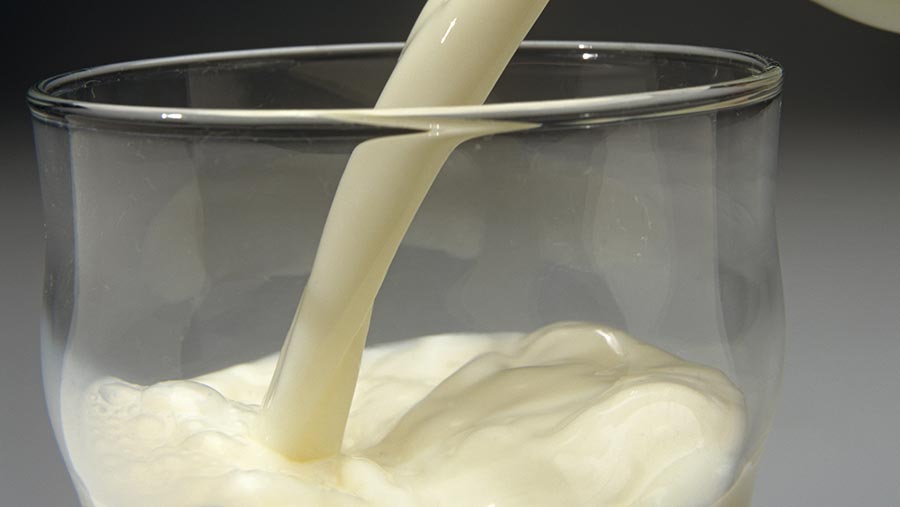Liquid milk sector starved of financial returns says Kite Consulting
 © Rob Cousins/REex/Shutterstock
© Rob Cousins/REex/Shutterstock The UK liquid milk sector is being starved of the financial returns it needs to fund development, improvement and promotion, a report has concluded.
The report –The Future Of The Liquid Milk Processing Sector – by Kite Consulting, said the UK dairy sector required farmers, processors and retailers to achieve sustainable returns.
See also: Outlook for beef: Low prices to linger until late summer
But it warned that if the sector was continually starved of the necessary re-investment money required, it risked more rapid decline and further factory rationalisation of capacity.
Kite calculated that a minimum of 2p/litre was required for reinvestment to sustain and move the sector forward.
A healthy industry will need profits to invest in new areas of growth to meet consumer demands, it said.
“However, that is not the sum-total of the investment requirement. The sector also needs the resources to protect and promote its primary product, milk, and to develop more added-value milk brands,” the report said.
Additional margin
It also added that while the UK dairy sector could provide world-class suppliers with world-class factories there were “clearly insufficient returns throughout the chain at the moment”.
Kite cautioned against assuming the additional margin could come from consumers paying more for milk.
“The grocery retail environment is more price-conscious than it has ever been, so no single retailer is likely to step out of line to increase consumer prices.
“In an over-supplied market, price will always be under pressure and the biggest opportunity to re-balance and improve margins is as supply and over-capacity is removed, reducing the frequency of marginal pricing and matching capacity to demand.”
At current return levels there will be change in the liquid processing sector, which is likely to become increasingly polarised, Kite suggested.
Three categories
The report fitted processor sites into three categories “Champions League”, “Premier League” and “Challenged League”.
The Champions and Premier League sites will get better, while the Challenged League sites risk falling behind in their capabilities and there will be many losers throughout the supply chain, Kite said.
The report also concluded that the capacity of the Champions League and Premier League sites was already maxed out, or close to being maxed out.
Where once there may have been excess capacity, there is far less of it now and very little, if any, among the very best, most sustainable plants in the country, the report said.
While Kite hoped for improved returns in the liquid milk processing sector for processors and farmers it recommended that all businesses, from retailers to farmers, needed to identify which category their processor partner came under.
Given the obvious challenges ahead on investment capability and the increasing environmental and consumer expectations, now is the time to align with those Champions League or Premier League processors who will end up winners, it suggested.
